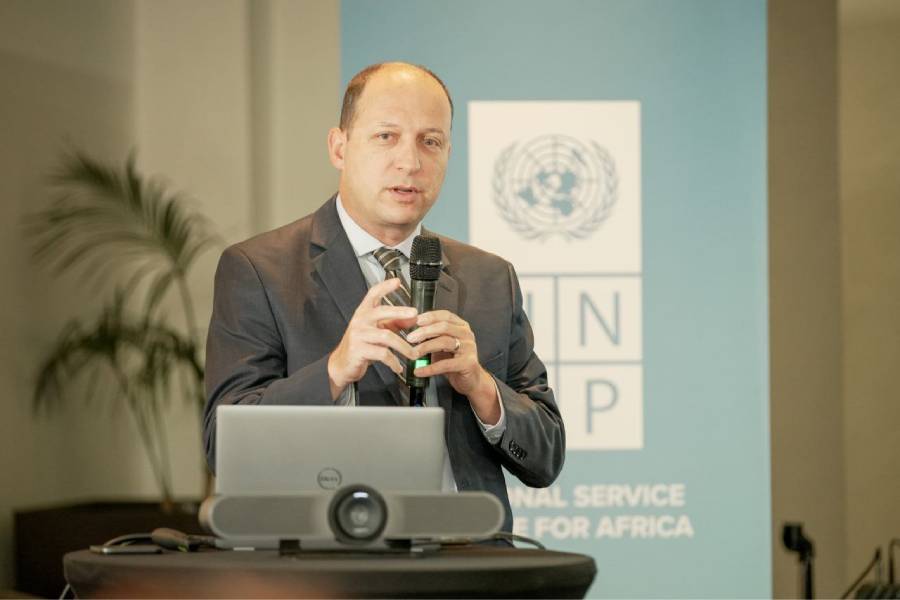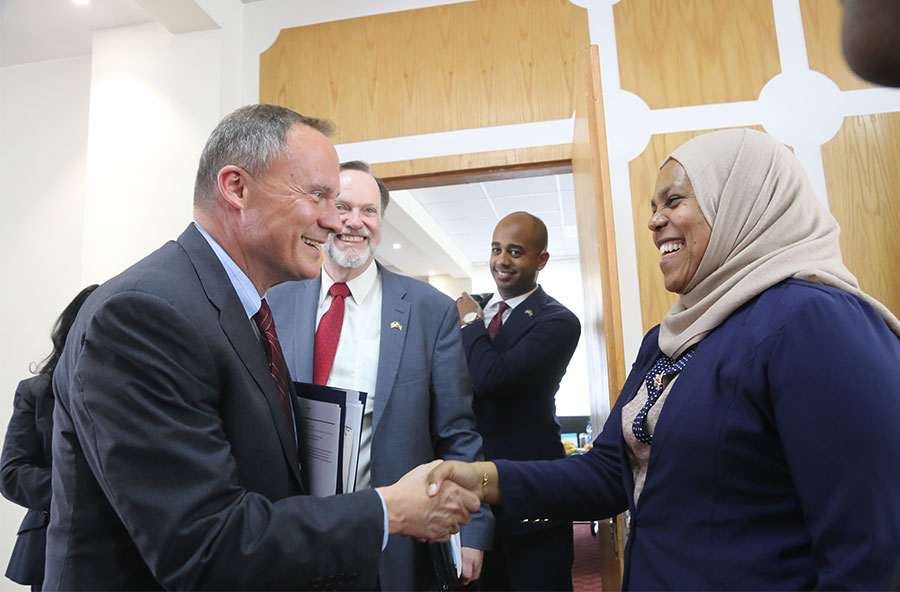
Fortune News | Sep 08,2024
Oct 14 , 2023
By Hintsa Andebrhan
The political schemes of the Horn of Africa have long held the attention of global powers. Historically, Ethiopia has been at the epicentre of this regional interest, particularly from the United States. From 1953 to 1974, a robust U.S.-Ethiopia military alliance flourished until an army coup upended it. With the dawn of the new millennium, the alliance was rejuvenated, with Ethiopia positioned by Washington DC as a linchpin in the broader global strategy against terrorism.
Billions of dollars in military and humanitarian aid were channelled to Addis Abeba. The late Prime Minister, Meles Zenawi, was frequently in the limelight, representing Ethiopia’s interests in major international summits. However, despite these diplomatic accomplishments, certain economic opportunities with the West were left unexplored.
Meles’s tenure, although marked by political influence in the region, particularly in isolating Eritrea, lacked a comprehensive economic strategy. His Administration seemingly failed to craft policies that could have drawn significant foreign direct investments (FDI), mainly from Western economies, particularly the US, to boost the economy. His successor, Halimariam Desalegne, faced his challenges, primarily internal party politics that led to the dissolution of the Ethiopian People’s Revolutionary Democratic Front (EPRDF).
During these transitions, Washington began recalibrating its strategy in the region.
Late September witnessed US Secretary of Defense Lloyd J. Austin III visiting countries in East Africa, save Ethiopia, inking a five-year military pact with Kenya. This shift seems to signal a withdrawal from Ethiopia, a country whose troops have combatted the Al-Shabab, a fundamentalist armed group in Somalia for over two decades. The rapidity of this change raises questions about America’s longstanding relationship with Ethiopia and its recalibrated geopolitical strategies.
Under Prime Minister Abiy Ahmed (PhD), Ethiopia’s diplomatic posture towards its neighbours has been increasingly perceived as inconsistent. Notably, relations with Sudan have become increasingly strained, centred around territorial disputes and contrasting foreign policy approaches. The recent standoff with General Abdel Fattah al-Burhan, Sudan’s de facto leader, is a case in point.
Four years ago, various media outlets, including this newspaper, highlighted the complexities of the evolving Sudanese political landscape. However, despite these warnings, Prime Minister Abiy’s Administration appeared unprepared to foster warm ties with the Burhan-led Sovereign Council in Sudan. This tension culminated in Sudan’s audacious move to claim territories along the Ethiopian border. Such moves from Khartoum were perhaps emboldened by perceived policy missteps and public statements from Addis Abeba, leading to Ethiopia’s exclusion from Burhan’s recent diplomatic itinerary.
Home to the African Union (AU) and a founding member of the Organization of African Unity (OAU), Ethiopia’s responsibility transcends its national boundaries. With a duty to uphold the sovereignty of African states, the current Administration is obligated to nurture constructive relationships regionally and globally.
Yet, the past few years have hinted at a concerning trend. Ethiopia’s diplomacy seems to waver between assertiveness and reticence, occasionally lacking the strategic vision needed to navigate the geopolitical complexities of the African continent.
Diplomacy, often seen as the softer instrument of statecraft, requires a nuanced and strategic approach. For a country like Ethiopia, steeped in a rich history and regional significance, diplomatic endeavours must be guided by cunning, loyalty, and enlightenment.
With its intricate political landscape, the Horn of Africa demands astute diplomatic strategies. The stakes are high for Ethiopia. America’s realignment towards Kenya should serve as a reminder of the fluid nature of global geopolitics. In this evolving paradigm, Prime Minister Abiy and his Administration should refine Ethiopia’s diplomatic playbook, ensuring that the country remains a formidable and respected player on the global stage.
Instead, his Administration would recognise the pitfalls of using diplomatic postings as political tools, rewarding politicians who were falling out of his favour. The need of the hour is to cultivate a cadre of dedicated career diplomats who, driven by national pride and strategic insight, can adeptly navigate the complex matrix of international relations.
PUBLISHED ON
Oct 14,2023 [ VOL
24 , NO
1224]


Fortune News | Sep 08,2024

Fortune News | Dec 05,2018

Commentaries | Feb 17,2024

Viewpoints | Sep 21,2019

Radar | Sep 18,2022

Commentaries | May 03,2025

Viewpoints | Oct 26,2019

My Opinion | Apr 13,2024

My Opinion | Dec 16,2023

My Opinion | May 25,2024

My Opinion | 131819 Views | Aug 14,2021

My Opinion | 128203 Views | Aug 21,2021

My Opinion | 126147 Views | Sep 10,2021

My Opinion | 123767 Views | Aug 07,2021

Dec 22 , 2024 . By TIZITA SHEWAFERAW
Charged with transforming colossal state-owned enterprises into modern and competitiv...

Aug 18 , 2024 . By AKSAH ITALO
Although predictable Yonas Zerihun's job in the ride-hailing service is not immune to...

Jul 28 , 2024 . By TIZITA SHEWAFERAW
Unhabitual, perhaps too many, Samuel Gebreyohannes, 38, used to occasionally enjoy a couple of beers at breakfast. However, he recently swit...

Jul 13 , 2024 . By AKSAH ITALO
Investors who rely on tractors, trucks, and field vehicles for commuting, transporting commodities, and f...

Jul 5 , 2025
Six years ago, Ethiopia was the darling of international liberal commentators. A year...

Jun 28 , 2025
Meseret Damtie, the assertive auditor general, has never been shy about naming names...

Jun 21 , 2025
A well-worn adage says, “Budget is not destiny, but it is direction.” Examining t...

Jun 14 , 2025
Yet again, the Horn of Africa is bracing for trouble. A region already frayed by wars...

Jul 6 , 2025 . By BEZAWIT HULUAGER
The federal legislature gave Prime Minister Abiy Ahmed (PhD) what he wanted: a 1.9 tr...

Jul 6 , 2025 . By YITBAREK GETACHEW
In a city rising skyward at breakneck speed, a reckoning has arrived. Authorities in...

Jul 6 , 2025 . By NAHOM AYELE
A landmark directive from the Ministry of Finance signals a paradigm shift in the cou...

Jul 6 , 2025 . By NAHOM AYELE
Awash Bank has announced plans to establish a dedicated investment banking subsidiary...